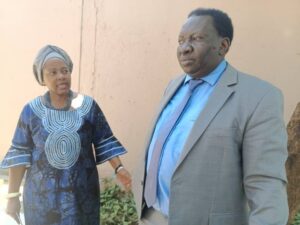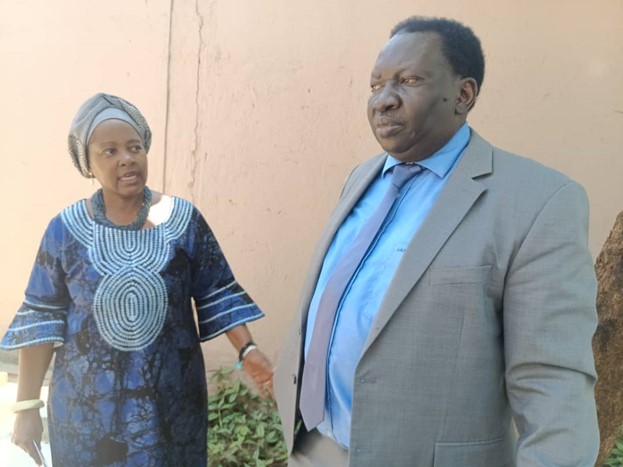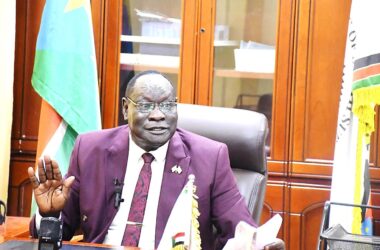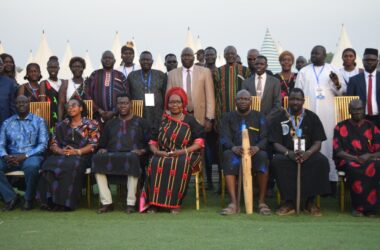
By Kei Emmanuel Duku
South Sudan is set to begin a significant journey next year with the implementation of the GEFF 8 Climate Resilient Program.
While this initiative aims to strengthen the nation’s ability to withstand the increasing impacts of climate change, its funding reveals a critical issue the country’s weak financial management system.
Joseph Africano Bartel, South Sudan’s Undersecretary for Forestry and Environment, made this point clear while speaking to the media at Palm Africa Hotel during the closer of the carbon market consultation workshop in Juba.
“The money is ours; it’s government money,” Bartel stated. “But due to our issues with the financial management system, the vertical funds don’t want to disburse the money to the Ministry of Finance because we haven’t put our public financial management system in place.”
This financial hurdle forces a unique and unconventional approach. “So, it has to go through a third party, which is an accredited entity like UNDP,” Bartel explained. “The proposal is ours. The money is ours. But somebody who is going to manage the money on our behalf is UNDP, to make sure that that money goes to implement the components.” This arrangement, he added, is a direct result of an inadequate financial system that has historically led to the diversion of funds.
Bartel emphasized the urgent need for the Ministry of Finance to fix its financial management system. “The Ministry of Finance needs to put its act together. Account for every funds that comes to the country through the donors.” While the funds are intended for the government, the Ministry of Environment will play a crucial role in ensuring the project’s integrity. “We will ensure that it is our project proposal,” he said, “We will make sure that those areas that we have identified that need those interventions, we will get it.”
GEFF grants, or Global Environment Facility (GEF) grants, are financial mechanisms provided by the Global Environment Facility (GEF).
The GEF is the largest multilateral funder of projects to improve the global environment, supporting sustainable development initiatives in developing countries.
These grants come from various international donors and are designed to address critical environmental issues. For South Sudan, these funds are specifically earmarked for climate resilience projects.
The first initiative under the GEFF 8 fund is the construction of a Climate Change Knowledge Centre. This facility will serve as a hub for information, allowing the public and various stakeholders to access vital data and insights on climate change.
Another key component is Capacity Building, which will focus on enhancing the ability of different institutions and line ministries to effectively address climate change challenges. This involves training and skill development to better manage environmental resources and implement sustainable practices.
Another component is Environmental Restoration, where a significant portion of the funds will be allocated to restoring degraded areas. The Undersecretary added that this program will involve rehabilitating degraded teak forests in areas like Loka, Yei, and Yambio, as well as restoring vital wetlands across the country.
He added that some of the grant will be used to promote Sustainable Practices such as smart agriculture techniques, water harvesting methods, and exploring clean household energy solutions, including fuel-efficient stoves and other alternative energy sources.
“The most important thing is to build resilience of our people to the impacts of climate change,” Bartel stated
The challenges highlighted by the Undersecretary are indicative of broader governance and financial management issues that many developing nations, particularly those emerging from conflict, face.
The reliance on third-party entities like the UNDP to manage funds, despite the money being the government’s own, underscores a fundamental lack of trust from international funders in the direct financial oversight capabilities of the national government. This often stems from concerns about transparency, accountability, and the potential for the diversion of funds.
Bartel’s statement also reveals an internal push within the Ministry of Environment to develop its own robust financial management system, separate from the Ministry of Finance. This proactive approach aims to streamline the flow of funds and ensure their direct application to intended projects, bypassing potential bottlenecks or systemic weaknesses within the broader government financial framework.
His comparison with Rwanda, where a ministry has developed its own credible financial management system, serves as an inspiring model for South Sudan’s efforts towards greater financial dependence and accountability in environmental project implementation.
According to the Undersecretary, this move not only addresses immediate funding concerns but also signifies a broader commitment to strengthening institutional capacity and good governance within the environmental sector.



